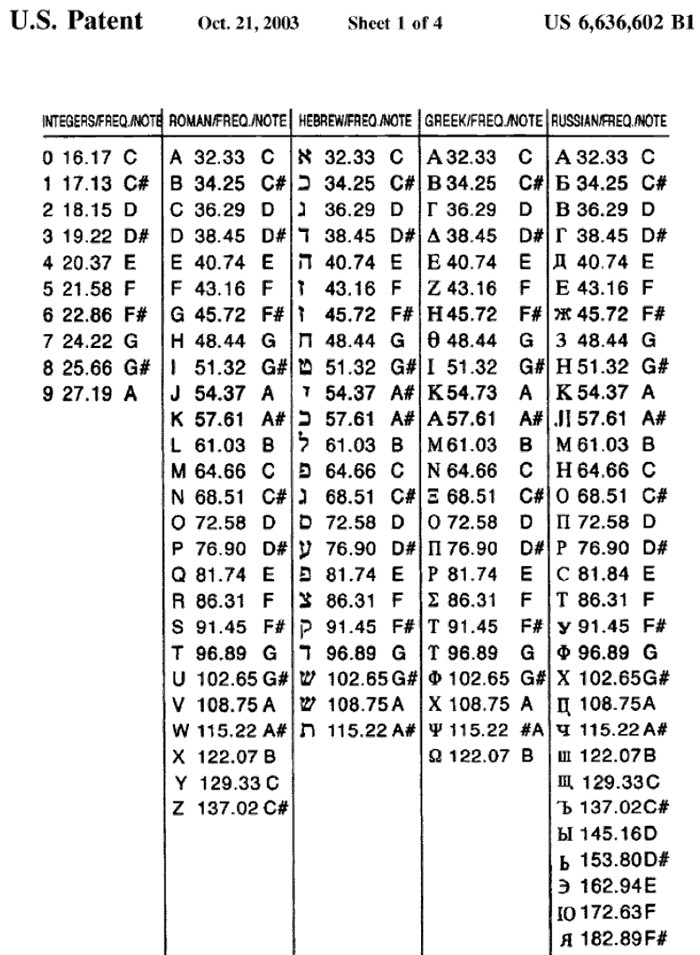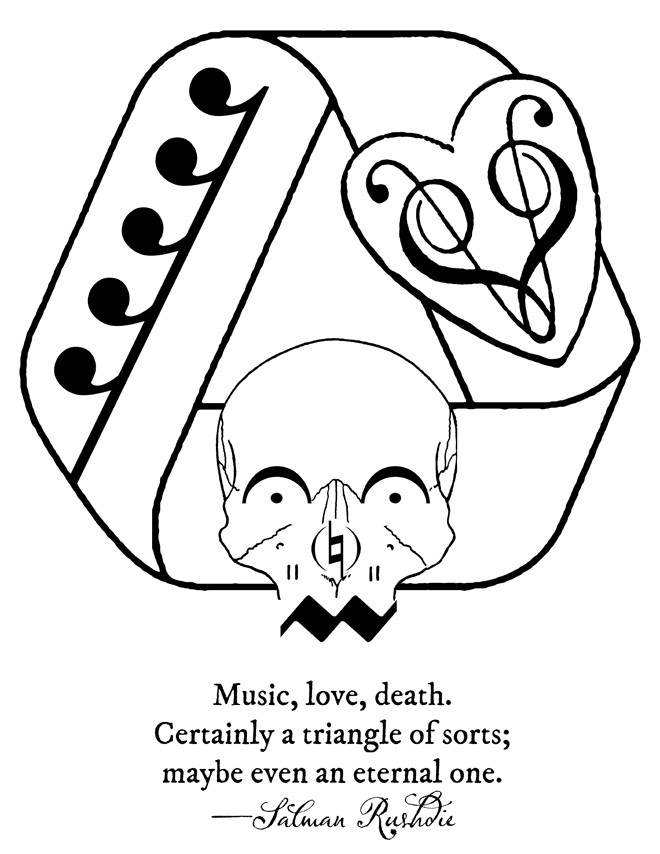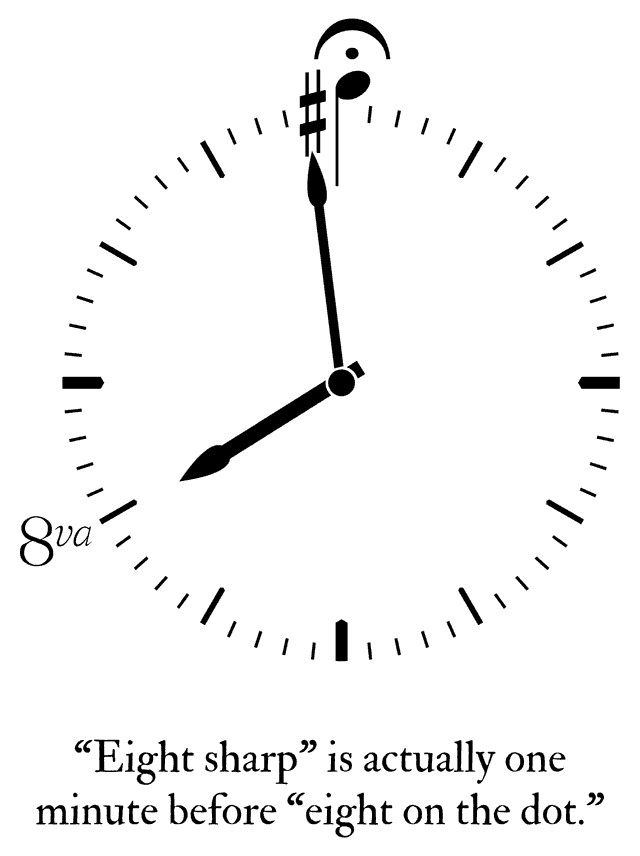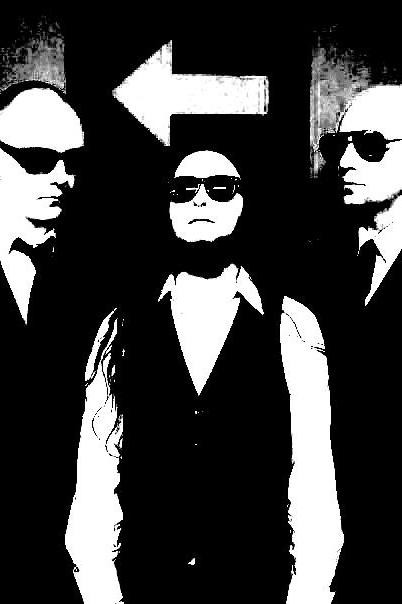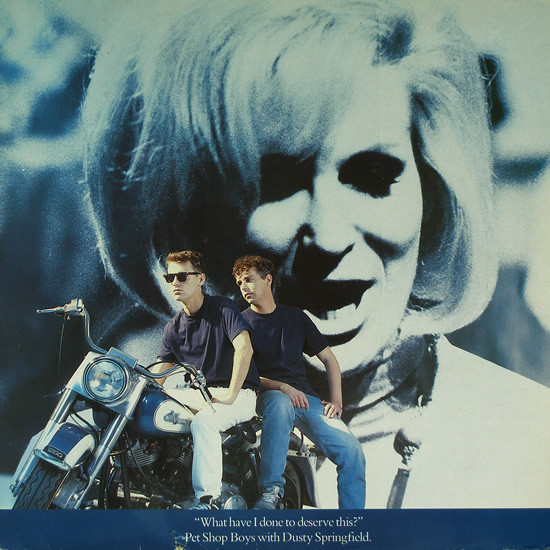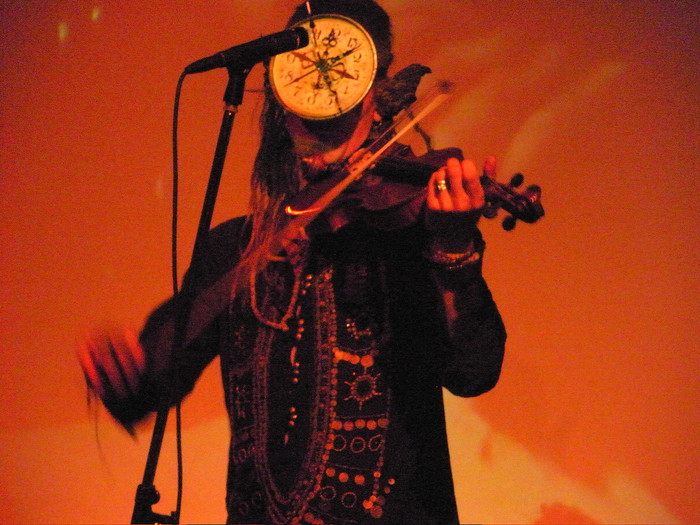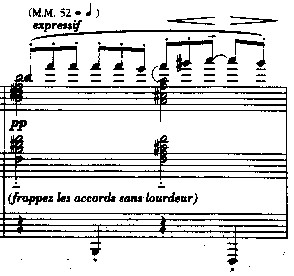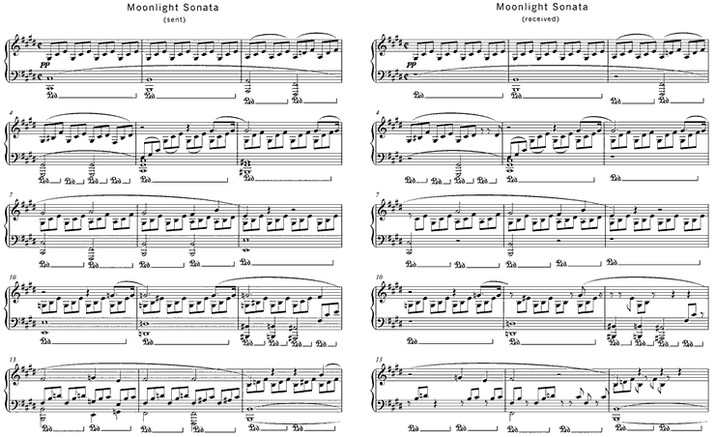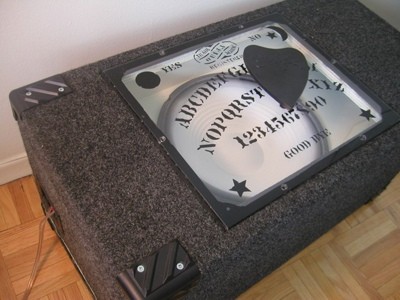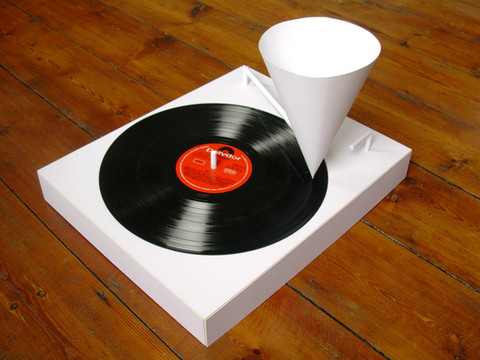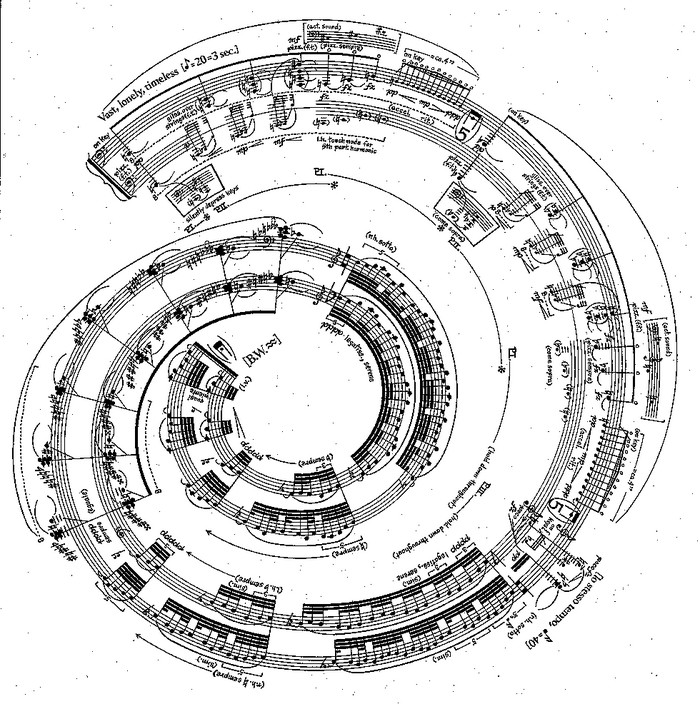|
|
 |
 |
 |
Wikipedia strives for an "encyclopedic tone," but what does such a tone sound like? Giovanni Vlacancich knows. He patented a method of "assigning each letter in an alphabet a musical note, converting words in a message into the musical notes and then using the musical notes to communicate the message to another human being." When played all together, the alphabetic notes of Wikipedia's encyclopedic tone sound like ... well, one hates to use the word cacophony. |

 |
|
|
 |
 |
 |
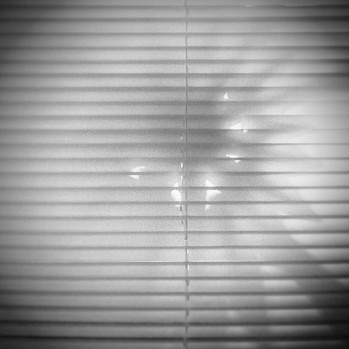
How to handle the psychic pain of learning that your music idol's own favorite song is " Stars Are Blind" by Paris Hilton: 1. Remember that Paris Hilton didn't write the lyrics or the music. She hired genuine talent to raise and buttress whatever exactly it was that she brought to the recording studio. 2. Remember that Paris Hilton hardly exists and therefore isn't especially fearsome. Perversely, she is famous for being famous — a persona without a presence. She's perhaps even less real for having starred in a television "reality series." She's as deep as a t-shirt slogan, as insubstantial as a tabloid headline plastered across a perfume bottle, an eternally spent bombshell with a leaked porn tape. 3. Your musical idol is entitled to his own (bad) taste. It's impossible to know what he's hearing when he listens to Paris Hilton. Every brain "decodes" musical signals differently, irresistibly overlaying idiosyncratic associations. Heck, given just the right mood and circumstances, listening to Bono's opinion on everything could — theoretically — be a pleasant experience. 4. Paris Hilton's "Stars are Blind" isn't an offense to human culture. It's a breezy, reggae-infused love song, neither more nor less than the genre demands. It's a passing cloud, not shapely enough for anyone to exclaim, "Very like a whale!", not large enough to offer shade, not charged enough to threaten lightning, not heavy enough to replenish the aquifers, not refractive enough to offer a rainbow. It neither helps nor harms but flimsily "is." 5. If all else fails, chant the Litany Against Paris Hilton: Paris Hilton is the mind-killer.
Paris Hilton is the little-death that brings total obliteration.
I will face Paris Hilton.
I will permit her to pass over me and through me.
And when she has gone past I will turn my inner eye to see her path.
Where Paris Hilton has gone there will be nothing.
Only I will remain.
|

 |
|
|
 |
 |
 |
Our daily " Music Box Moment" features a baker's dozen new tracks. Through the delicate workings of the music box, even the most dramatic
compositions seem to play only for you. You’ll hear even a very
familiar piece in a whole new way. Courtesy of home recording pioneer
Ken Clinger, we now feature Handel's "Flute Sonata #7," three movements of Mozart's "Piano Sonata 11," Weiss' "Air," four movements of Chopin's "Piano Sonata 1," Zielenski's "Fantazja II," Saint-Saens' "Rondo," Zach's "Praeludium & Fuga," and Wartecki's "Nos Autem Gloriari Oportet." Here's the link to the music box. It makes a great bookmark! |




 |
|
|
 |
 |
 |
Linear time reversed itself as the Belgian new wave band Neon Judgement remastered their first two cassettes and released them on vinyl LPs. Why they skipped 8-tracks along the way to vinyl, we'll never know, but we're eagerly awaiting a cylinder phonograph release, presumably available in time for holiday shopping. |


 |
|
|
 |
 |
 |
I was surprised to discover today that I was quoted in Wikipedia's " acoustic music" entry: Writing for Splendid, music reviewer Craig Conley suggests, "When music is labeled acoustic, unplugged, or unwired, the assumption seems to be that other types of music are cluttered by technology and overproduction and therefore aren't as pure." |

 |
|
|
 |
 |
 |
I was thrown into some sort of strange loop while watching the Pet Shop Boys "Pandemonium" concert. Neil Tennant was lip-synching a duet with Dusty Springfield. The dearly departed Springfield appeared in the form of a massive projection. Not only was she not present (except in spirit), but she was lip-synching, too, as her filmed footage wasn't of a live performance. There was Neil Tennant, "pausing" his lip-synched stanza to make sonic space for the projection of a deceased woman to lip-synch her own pre-recorded chorus. I was left . . . well . . . speechless. |


 |
|
|
 |
 |
 |
We applaud singer Deborah Harry for sidestepping one of the most tiresome, lazy, near-rhyme clichés to mar pop music. Instead of imperfectly rhyming "girl" and "world," Harry boldly changes sex for a "boy / world" couplet: Daybreak comes alive when I'm with you, boy. Too late. Can't survive without you in my world. Falling down like rain, I hear the thunder. I've thrown it all away to keep from going under. —" I Can See Clearly" (We acknowledge that "girl/world" is an echo of "mother earth," just as "man/hand" echoes the Spanish and Italian "mano," meaning "hand." Regardless of the merits of half rhymes, "girl/world" and "man/hand" are contemptibly overused.) |

 |
|
|
 |
 |
 |
Debussy had a secret for evoking a feeling of timelessness. SPOILER: His secret is a pentatonic melody above two alternating chords. [Thanks to Brent Hugh.] |

 |
|
|
 |
 |
 |
We're proud (and somewhat astonished) to announce the World Premiere of Erik Satie's beguiling 18-hour composition "Vexations," performed in the style of a music box. The poet Chris Piuma requested this unprecedented performance, in anticipation of a cross-country train expedition.
Listener take note: Satie's composition is eerie, mind-bending, and hallucinatory. Please don't play while operating heavy machinery.
What does this highly unusual performance sound like? The first listener likened it to "the uncanny valley between creepy and pleasant, between soothing and agitating, between meditative and disturbing. And I'm sure 15 hours into it I will be in some other state entirely. . . . I've wanted to hear an uninterrupted performance of this piece for over a decade, and now here it is!"
The second listener praised music box maestro Ken Clinger for capturing "the continual, unrelieved dissonance, with no obvious sense of direction or tonal centre, and the total chromaticism. I think anyone listening to this for 18 hours and 40 minutes would definitely hallucinate. . . . I suppose it would be curious if for the next 18 hours I kept writing a response. I'm not sure if it would reveal the anguish over unreciprocated affection that I feel listening to this aural Auschwitz. Maybe I should instead podcast. . . . Hours have passed and my hands feel like balloons, my feet like stars, and my hair has turned gray. . . . The 17th repetition I have designated as the Schwarzschild radius. See how slowly I appear to move? Do not be fooled. . . . My elbows tingle in calliopeic sympathy (or that may just be an odd manifestation of the carpal tunnel). . . . I can't stop crying. And laughing."
Fun fact: A music box cylinder containing the full score (with all 840 repetitions) would measure 4,032 inches in diameter (336 feet), which is the same height as the Victoria Tower at London’s Westminster Palace.
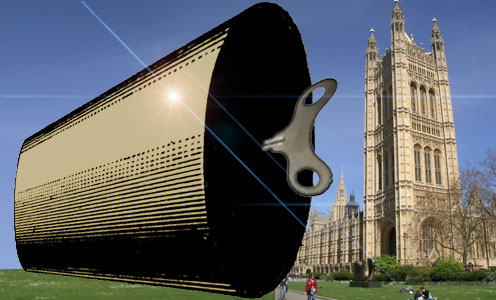 |
In addition to streaming audio, a 63 MB mp3 of "Vexations" is available. --- Dankitti writes: 18 hours? The best I could do was Guru Sven, which is only 12 hours.
|

 |
|
|
 |
 |
 |
Come in the evening, or come in the morning; Come when you're looked for, or come without warning; Kisses and welcome you'll find here before you, And the oftener you come here the more I'll adore you! — John Williamson Palmer, Folk Songs (1861) Don't miss the twee pop band Original Silly Pillows, who coincidentally have a song called "Come in the Evening" (hear it on their MySpace page). |

 |
|
|
 |
 |
 |
Oh if you ain't got the do re mi, folks, If you ain't got the do re mi, Why, you'd better go back to beautiful Texas, Oklahoma, Kansas, Georgia, Tennessee. — Woody Guthrie, "Do Re Mi," a Dust Bowl ballad of the 1930s |

 |
|
|
 |
 |
 |
Earth–Moon–Earth (Moonlight Sonata Reflected from the Surface of the Moon)Earth-Moon-Earth "is a form of radio transmission whereby messages are sent in morse–code from earth, reflected from the surface of the moon, and then received back on earth. The moon reflects only part of the information back – some is absorbed in its shadows, 'lost' in its craters. Beethoven’s Moonlight Sonata has been translated into morse-code and sent to the moon via E.M.E. Returning to earth 'fragmented' by the moon’s surface, it has been re-translated into a new score, the gaps and absences becoming intervals and rests." View the sent score and the crater-filled score received back, and hear excerpts of the score here.
|

 |
|
|
 |
 |
 |
Artist Jon Sasaki modified a subwoofer to vibrate a Ouiji pointer over a Ouiji Board, "spelling out the sinister directives that have been encoded in all popular music as subliminal messages." See a video of the device in action! |



Page 12 of 13

> Older Entries...

Original Content Copyright © 2026 by Craig Conley. All rights reserved.
|



